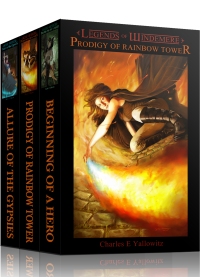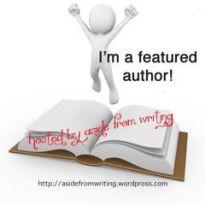
Google Image Search
Being a single father, I think about the father/son relationship a lot. Mostly because I’m always hoping I’m doing right by my own son. This gets tougher when I see fiction maintaining the ‘stoic father’ ignoring the son’s issues until they explode or not having the father be in there at all. It can get even worse with adventures because the father tends to die at some point. Come to think of it, fathers are fairly common sacrificial characters if they’re in the picture at all. Anyway, here’s some ideas on writing a father/son relationship in fiction.
- If the father comes from a generation where men don’t show emotion or parenting is the ‘woman’s job’ then establish that. Fatherhood has changed over the years with more fathers taking on child-rearing responsibilities. Many show emotions and talk about feelings with their sons too. This isn’t seen as manly by some, but it is how many relationships are these days. So, don’t be afraid to show that if it’s the type of story you want.
- The son doesn’t always have to be railing and battling against the father. We know that children test their limits, but something about the father/son challenge turns into toxicity in writing. Authors seem to want the father to be the villain or the son to be the young fool. I rarely see these portrayed as a problem that gets solved by talking before somebody gets hurt. Most times, I see it result in the total destruction of the relationship or at least the disappearance of it until the epilogue.
- Fathers aren’t always disappointed in their sons! This is a common trope, which does play out in real life. I’ve always wondered if it happens so often because it’s seen in every genre. Our culture practically demands that fathers criticism and frown at whatever their son is doing unless it’s following in their footsteps. This also tends to make the mother the more understanding and loving parent, which feeds into other clichés.
- As stated, fathers are more than able to talk about feelings. An open and comfortable relationship between parent and child is fine. You won’t get conflict between them, but you can challenge them in other ways. The story doesn’t always have to involve the near destruction of the father/son relationship.
- Hugs. Nothing wrong with a parent hugging their child.
- There should still be some boundaries between the father and son. A child will not be comfortable talking about everything with their parent. You also need to make sure the parent has a level of authority instead of coming off solely as a friend. This can be delicate, but it doesn’t have to be something that causes conflict. Boundaries can be established and respected by the characters. They don’t always have to be pushed and broken.
- There’s a rule in society that parents shouldn’t cry in front of their children, especially fathers. Apparently, doing so can be called manipulation, weakness, pathetic, and a long list of insults. I disagree. Having a father cry when one would normally cry makes them human in the story. Otherwise, you end up blocking the emotional connection between parent and child. As stated, fathers can have this too. It isn’t only for mother/child stories.





These are great tips! I know a number of great dads who are the primary parent so they would appreciate this! I have a fractious dad-son relationship in one book for the sake of plot. But I appreciate the gift of having an involved father for sons (and daughters). I can’t help thinking about Denethor in LoTR. He was an awful father to Faramir. But Atticus Finch in To Kill a Mockingbird was an excellent father.
LikeLiked by 1 person
I’ve seen even Atticus come under fire as a bad father. Think he was too strict or something. Seems rare to see good, involved fathers in fiction these days.
LikeLike
A lovely and thoughtful list, Charles. My grandmother use to say, when I – the mother – was frustrated with my son – Always let him know you love him. Love solves a lot of problems. And she was right. I think this holds for fathers, too. My favorite word for my son when he did something I really disapproved of was, “I might not like you much right now, but I will always love you.”
LikeLiked by 1 person
Good advice. Though I find many men find it hard to say that. Makes sense given how boys are raised to shun their emotions.
LikeLike
Yes they are, and I think that can be a problem later on in their lives.
LikeLike
Your point six is great advice for not only characters but real life relationships. I see so many parents trying to be friends with their kids and they miss the leadership point. Come to think about it, all your points are good advice for real relationships.
LikeLiked by 1 person
Modern parenting is weird. It does help to have some friend-like qualities to a parent/child relationship. It makes the child’s transition into adulthood easier for both parties to handle. Not to mention a teen is more likely to listen if one isn’t a constant ‘obey me’ controlling type.
LikeLiked by 1 person
So many authors use parent/child tension as a source of cheap drama. It’s really almost a relief when they have a warm and supportive relationship.
LikeLike
Sadly, that type of drama is cheap, but highly common in real life. People can more easily relate to it than most other dramas.
LikeLiked by 1 person
Good tip. It’s hard to avoid this kind of drama because most of it is true. It happens in real life. Stories need tension, so it’s kind of a safe place to go.
LikeLike
Unfortunately it is low hanging, but very relatable fruit.
LikeLiked by 1 person
Pingback: Browse advice blogs & read articles ‹ Reader — WordPress.com – Estudio, Bufete de Abogados, Despacho Jurídico.